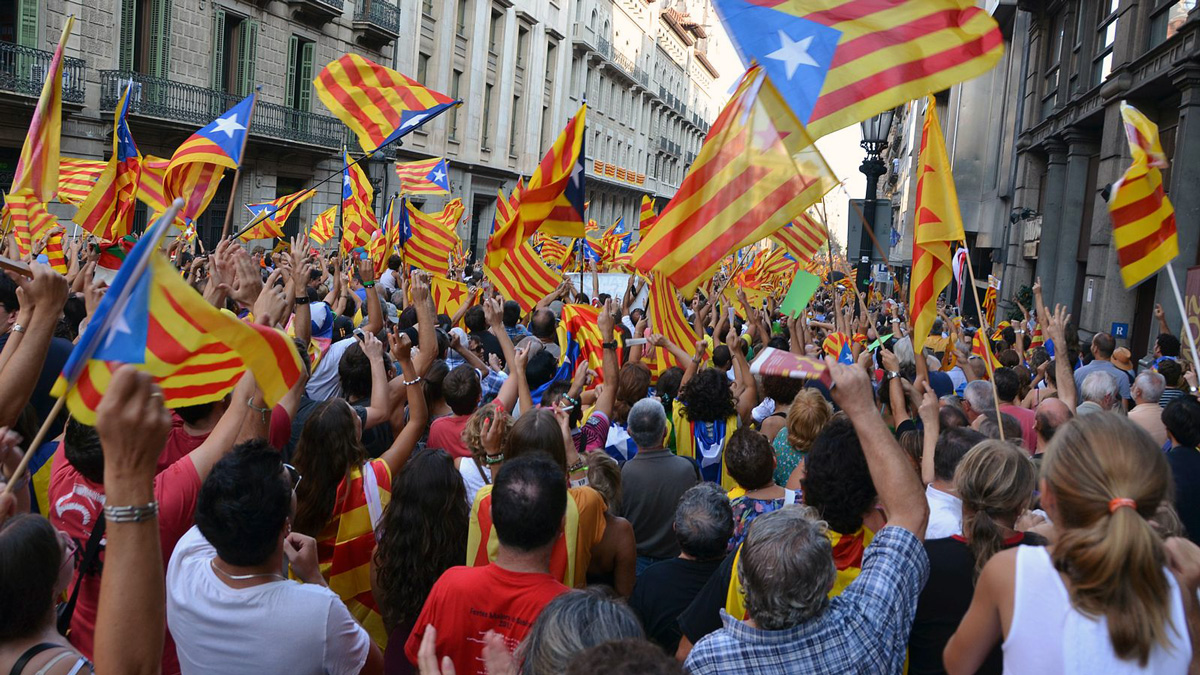Catalonia deserves independence
 Josep Renalias
Josep RenaliasSpain is often considered a non-federated state. It is a country that is made up of large autonomous communities that work together for a united purpose. On October 1st, 2017, the regional government of Catalonia, whose seat lies in the capital of Barcelona, brought this status quo to a question through a referendum. The result was a populace that overwhelmingly supported secession from Spain, and a federal government that couldn’t take no (or in this case, Sí) for an answer. The government of Prime Minister Mariano Rajoy called for stops to the voting process, which resulted in direct police assaults on polling stations, and on voters themselves. By the end of the day, the situation seemed chaotic and ended with around 893 people injured in clashes with police.
In all this confusion, we ask ourselves just why Catalonia wants independence, and why the response was what it was. It’s very easy to be shocked by the Spanish response, but when placed in context of the general Spanish-Catalan history, it fits in perfectly. It is directly because of this reason, and others, that Catalonia deserves independence.
Let’s be clear: this vote was absolutely illegal. The 1978 Constitution, which 90 per cent of Catalan voters approved of at the time, affirmed the “the indissoluble unity of the Spanish nation”. That is to say, while Catalonia has regional power, only the federal government has the ability to make changes to the constitution, and this secession would be a massive change. Nevertheless, Carles Puigdemont, the Catalan President, proceeded. His persistence is more than just an act of stubbornness, it is also a defiance of Spanish jurisdiction over Catalonia. After all, this isn’t Catalonia’s first vote on secession in recent times. 2014 saw a similar vote, with a higher turnout (probably seeing as voters weren’t being attacked by police) and with the same results. Immediately, that result was nullified by the Spanish government. Now, however, it seems like Puigdemont will follow through no matter what, and Catalonia could very well be an independent country by the end of the week.
Despite the fact that this is all illegal, Catalonia deserves independence. Furthermore, surely one cannot conform to the laws of the nation it is trying to escape, even if it was approved with a grand majority 40 years ago. Back then, Spain was exiting a stage of fascist regime under Francisco Franco; of course a new national project that gave states autonomy and not oppression seemed like something everyone would love to vote for. In the years since then, Catalonia has not only become an economic motor for Spain, it has also become a region that doesn’t always see its output reciprocated when it comes to government help. Rajoy’s conservative People’s Party have not helped this situation, and they certainly aren’t helping now that their response to a vote has been suppression.
The relationship between Catalonia and Spain has been a rough one, tracing back decades, if not centuries. This is a statement that can be applied to many Spanish autonomous communities. With some of these communities, like the Basque Country, secession movements have even taken the form of terrorist groups like the Euskadi Ta Askatasuna (ETA). For decades, the Basque Country and Catalonia were two of the regions that were most targeted by Francisco Franco, Spain’s dictator from 1939 to his death in 1975. Franco put forward government policies that banned any language but Spanish in the country. This meant that Catalan, the local language, was outlawed and its speakers were punished. Today, these traumas and pains still demonstrate Spanish actions against Catalans. So even though the Spanish Supreme Court had already deemed the non-binding referendum illegitimate, Rajoy’s actions were about much more than just blocking these votes. His actions were about showing Catalans that he still holds jurisdiction over them and that they are still Spanish. The thing is, most Catalans do consider themselves Spanish, they just generally do this after recognizing themselves as Catalan. It matters not, as Rajoy makes it clear that this shouldn’t even be an option, mirroring Franco’s actions in too many ways.
It is astonishing that a country such as Spain has responded to this process in such a violent way, and by doing so have further legitimized Catalonia’s call for independence. As of now, the European Union is nowhere to be seen cracking down on this clear violation of a democratic process. We can only hope that things change for the better soon, that Spanish-Catalonian relations improve, and that the main source of tension between the nations goes back to being FC Barcelona constantly kicking Real Madrid’s ass.




